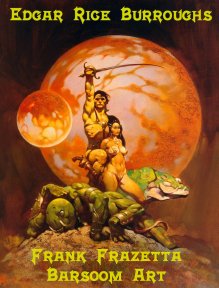Mourning the Loss of a Way of Life

 It may seem a bit peculiar to write an article about the decline in reading for a site that has done so much to promote the works of writers past and present. Most assuredly, regular visitors to this site are readers. Unfortunately, they are the exception and not the rule in the present day.
It may seem a bit peculiar to write an article about the decline in reading for a site that has done so much to promote the works of writers past and present. Most assuredly, regular visitors to this site are readers. Unfortunately, they are the exception and not the rule in the present day.
During the pulp era, writers were sometimes referred to disparagingly as the Penny-a-Word Brigade. Flash forward to the end of the second decade of the 21st Century and you’ll find far too many pulp writers who would salivate at the thought of earning a penny a word for their efforts. Far too many receive no financial compensation at all, some do not even receive comp copies of their own titles.
The purpose of this article isn’t to disparage small presses that are labors of love for publishers who regularly soldier on year after year failing to turn a profit. When you are a small operation, economies of scale aren’t even a concern. You could publish two dozen titles a year and still lose money. Paying writers or artists is not always possible for those who are in it for something other than financial return.
 As some of you may know, I’ve been talking and thinking and blogging (not necessarily in that order) about reading more, and reading better over the course of the last year. Today being New Year’s Day, the day of resolutions and goal-setting, I thought I’d link to some of the posts I’ve written on the subject for those interested in focusing on ratcheting up their reading in the coming year.
As some of you may know, I’ve been talking and thinking and blogging (not necessarily in that order) about reading more, and reading better over the course of the last year. Today being New Year’s Day, the day of resolutions and goal-setting, I thought I’d link to some of the posts I’ve written on the subject for those interested in focusing on ratcheting up their reading in the coming year. When people ask me what I like to read I usually answer with a simple ‘everything,’ but of course that’s not strictly true. I don’t read trigonometry textbooks or Romance novels, celebrity memoirs or cookbooks, monographs on the evolution of sheep shearing or anything by Dan Brown (in fact, just give me that thing on sheep first). But when I say ‘everything’ I’m being figuratively if not literally honest, because my tastes — especially when compared to the average reader — are very broad. I don’t read only one kind of thing. I’m a generalist.
When people ask me what I like to read I usually answer with a simple ‘everything,’ but of course that’s not strictly true. I don’t read trigonometry textbooks or Romance novels, celebrity memoirs or cookbooks, monographs on the evolution of sheep shearing or anything by Dan Brown (in fact, just give me that thing on sheep first). But when I say ‘everything’ I’m being figuratively if not literally honest, because my tastes — especially when compared to the average reader — are very broad. I don’t read only one kind of thing. I’m a generalist. Lately I’ve been immersed in all things bibliophilic, reflecting on reading more, organizing my shelves, the value of keeping a list, and the costs associated with an obsession with books. And it occurred to me in the midst of all this that there was something else I could talk about that most of us take for granted, a semi-invisible and rather elementary facet of the reading life that is none-the-less worthy of our occasional attention. Bookmarks.
Lately I’ve been immersed in all things bibliophilic, reflecting on reading more, organizing my shelves, the value of keeping a list, and the costs associated with an obsession with books. And it occurred to me in the midst of all this that there was something else I could talk about that most of us take for granted, a semi-invisible and rather elementary facet of the reading life that is none-the-less worthy of our occasional attention. Bookmarks. I don’t consider myself a fast reader, though I must be someone’s definition of fast. I started reading early, and was always something of a bookworm as a child, but I was never one of those kids who could sit down a read a whole novel in a few hours. In other words, I don’t have any special powers or prodigy-level talents, and what reading speed I have managed to develop has only really emerged later in life, and only with effort.
I don’t consider myself a fast reader, though I must be someone’s definition of fast. I started reading early, and was always something of a bookworm as a child, but I was never one of those kids who could sit down a read a whole novel in a few hours. In other words, I don’t have any special powers or prodigy-level talents, and what reading speed I have managed to develop has only really emerged later in life, and only with effort.  Surprised by the dust on all those books you ‘just bought’ but haven’t gotten to yet? To-be-read pile threatening to topple and crush you under its weight? Tired of being left out of conversations about authors you haven’t read yet? Me too. All of this is common enough for any bibliophile, to varying degrees or another, and its nice that we can commiserate. That is, most of us can, but not all of us, for there is a strange breed that lives among us with the book-lover’s equivalent of superpowers — the hyperspeed reader.
Surprised by the dust on all those books you ‘just bought’ but haven’t gotten to yet? To-be-read pile threatening to topple and crush you under its weight? Tired of being left out of conversations about authors you haven’t read yet? Me too. All of this is common enough for any bibliophile, to varying degrees or another, and its nice that we can commiserate. That is, most of us can, but not all of us, for there is a strange breed that lives among us with the book-lover’s equivalent of superpowers — the hyperspeed reader. Naughty or nice? Well, the holidays being my favorite excuse to procrastinate, I’ll have to reluctantly admit to ‘naughty.’ Being naughty, I’ve left my blog entry to the last minute. I’ve had a few New Yearsie ideas I thought I might advance, the kinds of things having to do with resolutions — mostly of the writing variety. But writing has been well enough covered at Black Gate of late and, while I know we have a lot of writers in our audience, I can’t help but think the thing that really pulls us all together, and sets us apart from, well, from a great many people who would never pick up a work of fiction let alone investigate the website of a fantasy magazine, is that we are all readers. First and foremost, that defines us.
Naughty or nice? Well, the holidays being my favorite excuse to procrastinate, I’ll have to reluctantly admit to ‘naughty.’ Being naughty, I’ve left my blog entry to the last minute. I’ve had a few New Yearsie ideas I thought I might advance, the kinds of things having to do with resolutions — mostly of the writing variety. But writing has been well enough covered at Black Gate of late and, while I know we have a lot of writers in our audience, I can’t help but think the thing that really pulls us all together, and sets us apart from, well, from a great many people who would never pick up a work of fiction let alone investigate the website of a fantasy magazine, is that we are all readers. First and foremost, that defines us.